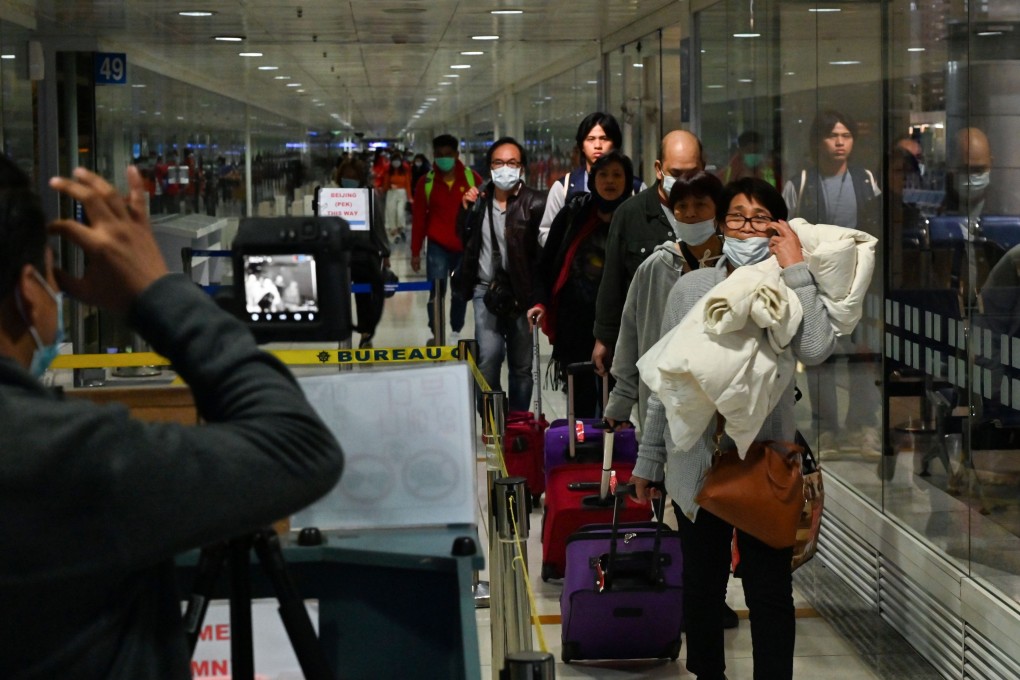Advertisement
Coronavirus: Philippines’ one-China travel ban extends overseas workers’ anxiety
- Manila’s ban on travel to or from mainland China, Hong Kong and Macau in the wake of the coronavirus outbreak has been extended to also cover Taiwan
- The move has left stranded workers with jobs on the self-governing island fearing for their futures, a familiar feeling for those Filipinos already affected
Reading Time:5 minutes
Why you can trust SCMP

On Tuesday morning, a group of 30 newly hired Filipinos arrived at Manila’s international airport to board a flight for Taipei, to start their three-year contracts working in a factory in Taiwan.
There was a change of plans, however, when they learned their flight was cancelled: the Philippine government had included Taiwan in its earlier ban on travel to China because of the deadly coronavirus outbreak.
The move left more than 200 Filipinos who had been preparing to depart for Taiwan – including the 30 would-be factory workers – in the lurch.
Advertisement
“We were so angry and disappointed,” said Janelle, who was travelling to Taiwan for the first time from her hometown in Isabela province and asked that her name be changed over fears she may face retribution from her recruitment agency or employer. “Some hadn’t had their breakfast [and] hadn’t slept.”
President Rodrigo Duterte enforced a ban on inbound tourists from mainland China, Hong Kong and Macau on February 2 as cases of the virus, which originated in Wuhan, began to mount and the Philippines recorded the world’s first death outside the origin country. The order also barred Filipinos from travelling to the affected areas, including foreign workers.
Advertisement
On Monday, the Philippines expanded the travel ban to include Taiwan, citing the country’s one-China policy and the World Health Organisation’s classification of Taiwan as a part of China.
Advertisement
Select Voice
Select Speed
1.00x